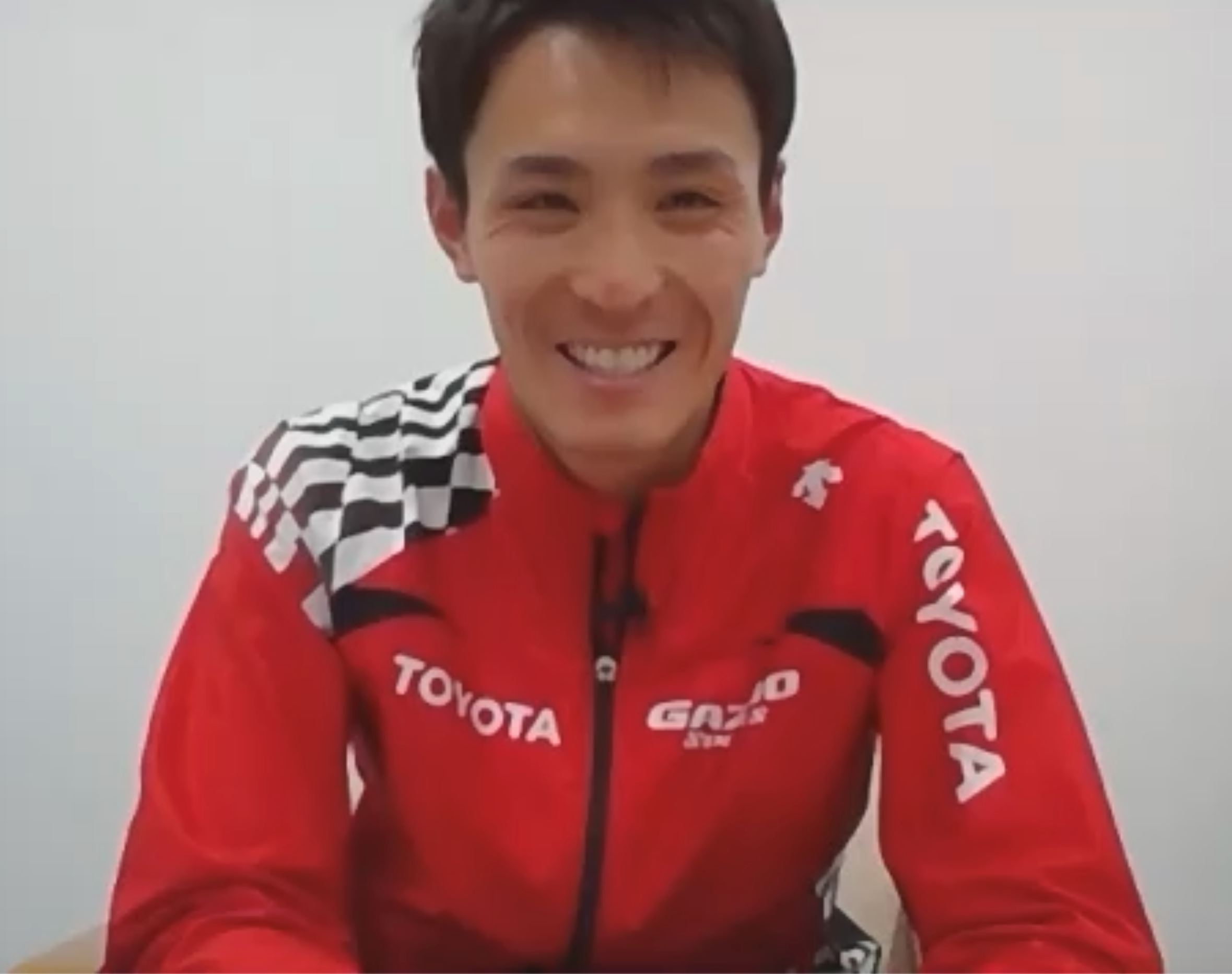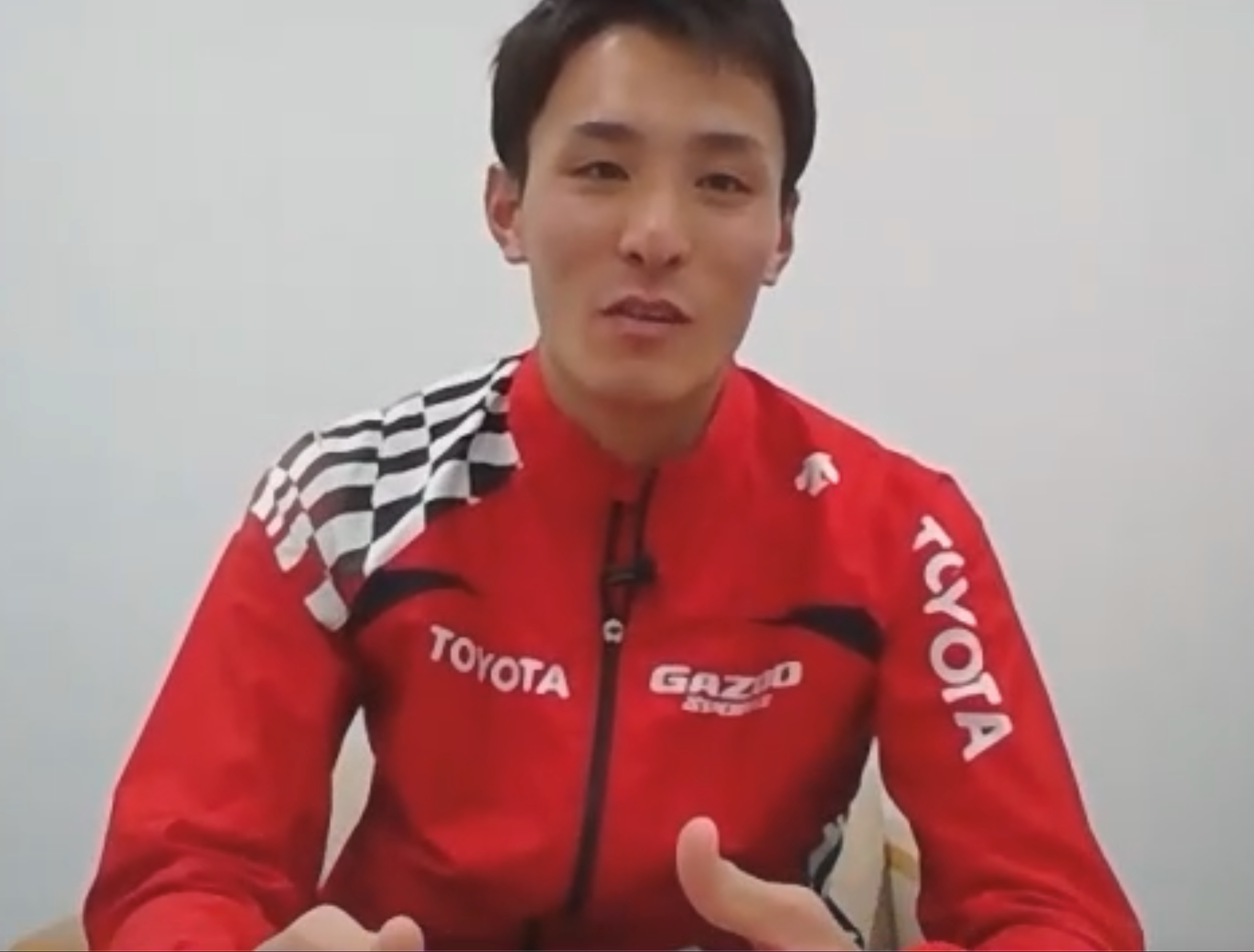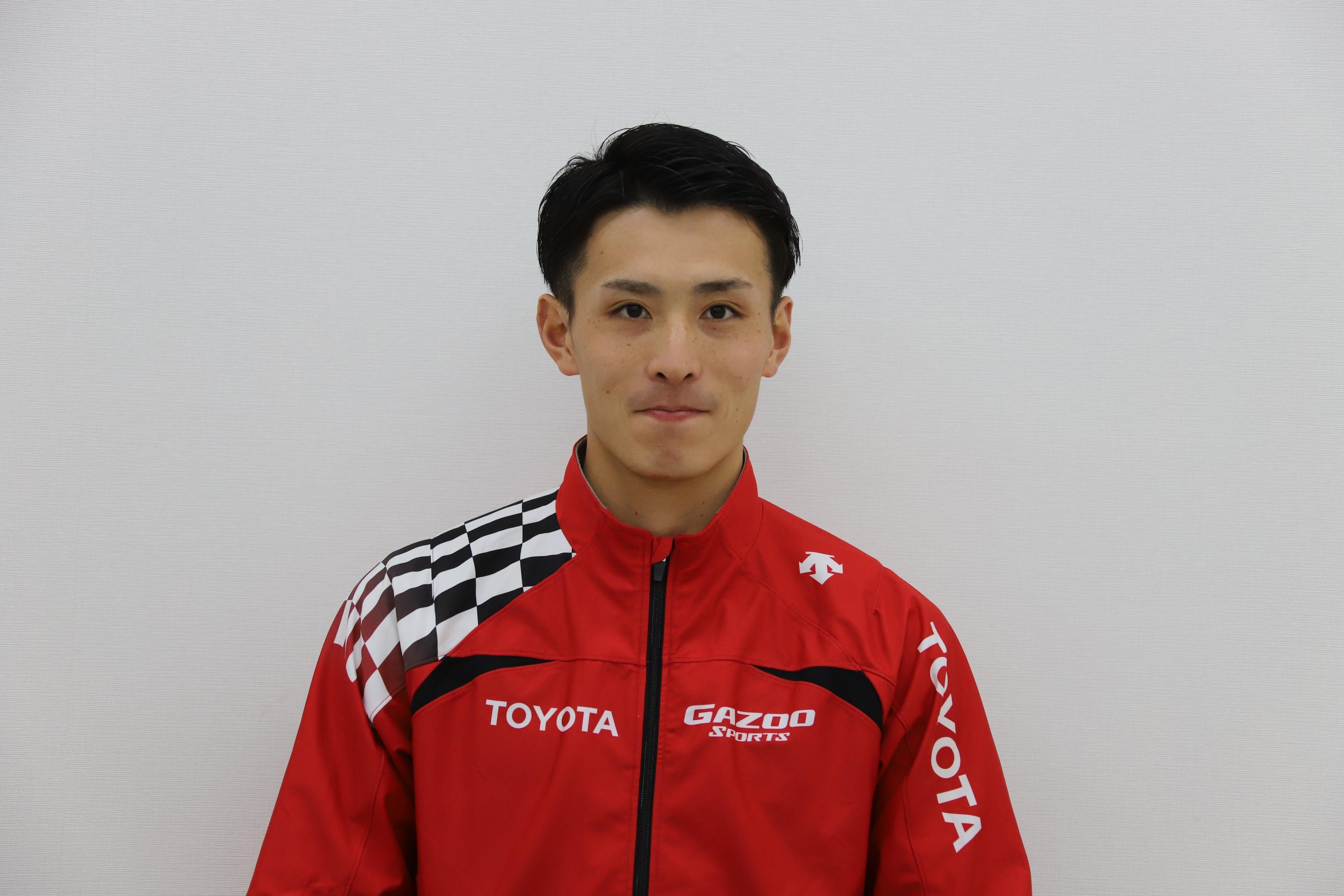
After joining Toyota, marathon runner Yuma Hattori' has changed his mindset "I run for others, not for myself." What is the reason behind this change?

Athletes stand on the podium with the crowd cheering and cameras flashing. But they don’t make that happen just by themselves. Various people, from coaches, friends, colleagues, rivals, to families provide support with them, and behind a success or struggle, there are many different stories for each athlete. This athlete series highlights what enables athletes to take on challenges.

If I could be born again, I’d choose the same family in another life
The Marathon Grand Championship (MGC) held on September 15, 2019 also served as trials for selecting the marathon runners who would represent Japan at the Olympic Games Tokyo 2020. During the marathon, Yuma Hattori, an athlete who belongs to Toyota Motor Corporation, was in a dead heat with Suguru Osako, the Japanese record holder at the time. Then Hattori gained a substantial lead running uphill in the last 200m, and finished in second place, granting him a ticket to Tokyo 2020.
Hattori, who was a star Ekiden (Japanese traditional marathon relay) runner when he attended Toyo University, said, “I have a broader perspective” when asked about how he feels about growing at Toyota.
Hattori
When I was a student, I tended to focus only on my track record, but as an adult, I became more aware of the people who support me. I sincerely believe there is a connection between being aware of my surroundings and delivering racing results that I’m happy with.
After listening to Hattori talk, I became curious about the people who helped him to reach the Olympic Games. I began by asking him about his life as a competitive athlete and his relationship with the people who support him.
Hattori was born in Niigata Prefecture and after performing well at a national race in ninth grade, he was scouted by Sendai Ikuei Gakuen High School in Miyagi Prefecture (more than 300km away from Niigata), which is known for competitive sports teams including athletics.
However, both he, a fifteen year old at the time, and his parents were hesitant of him leaving home.
My parents and little sister drove me to the school dormitory in Sendai, Miyagi Prefecture. I got emotional when I heard that all three of them cried on the drive back to Niigata after seeing me go inside.
One year later, my little brother Hazuma entered Sendai Ikuei. I was happy about running together with him again, and having each other in our lives gave me more confidence compared to my first year. There were times I had to look after him, but working together motivated me.

As you can see, Hattori’s bond with his family was a great support when he started his competitive life. He ran with a good luck charm made by his sister Hazuki, who is 10 years younger, on the chest of his uniform at the MGC mentioned before. A picture of his late grandparents was in the charm.
I really think that I have an amazing family, and If I could be born again, I’d choose the same family in another life. I can’t thank my family enough for being there.
Mentor who challenged rather than praised him
Hattori met his mentor before entering college while he was still actively competing in inter-high school competitions and the All-Japan High School Ekiden Championships.
Thankfully, I was getting offers from several colleges. While most coaches praised me, Coach Sakai from Toyo University was the only person who pointed out my weaknesses and gave me advice how I could overcome them. I chose Toyo University because I thought following Coach Sakai would make me grow further.

After entering Toyo University under the mentorship of Coach Sakai, Hattori showed spectacular success by winning two consecutive years in Leg 2 of the Hakone Ekiden in which the fastest runners in each team traditionally run. He also started to set his sights on global competition during his time at Toyo University.
After realizing my childhood dream of running in the Hakone Ekiden, as a college freshman I started wondering what my next goal would be. Then came the Tokyo 2020, which I thought was a great opportunity to challenge myself, so I started taking running in the Tokyo 2020 marathon seriously.
When considering his post-college career, he chose Toyota because he thought that the wide range of work and global experience would broaden his perspective.
My knowledge and experiences from school days were limited, so I felt anxious about not being able to grow more both as an athlete and a person. I was told that I would be able to run as an employee at Toyota, so I realized that I could aim high if I worked at a company to broaden my experience while building a solid base for growth.
Appreciation for the mentor who never gave up
Hattori joined Toyota with a brilliant track record and a big dream of aiming for the Tokyo 2020. However, for the first time in his competitive life he faced a major hurdle.
Looking back on it now, I realize that I was pretty immature when I first joined the company. I had a great track record during my school days, so I thought I could just continue with my high performance. I focused to practice more efficiently, but Coach Sato pointed out that I should work on building basic physical strength because I lacked stamina.
However, I didn’t listen to him, and kept practicing in my own way. As a result, I got injured and couldn’t run at all. There were times that I couldn’t run in my college life, but I had the biggest hurdle of my competitive life at Toyota. I never thought to quit running because it is something irreplaceable to me, but still, it was a really hard time for me.
When Hattori hit rock bottom, it was Coach Sato from Toyota who reached out to him.
Even though I didn’t listen to advices by Coach Sato, he never gave up on me, and patiently continued to point out my problems and weaknesses. At around that time, another athlete broke the Japanese record, which motivated me to ask for and accept his opinions.

In the words of Hattori, Sato's advice was: "Stick to the old-fashioned practices from 20 to 30 years ago."
At the time, athletes that focused on speed instead of long-distance training delivered good results. I based my training on that, but there is no one-size-fits-all approach when training for the marathon. I realized that training methods vary from person to person, and once I followed Coach Sato’s advice to incorporate long and slow running practice, my results started improving.
Whether it was Coach Sakai from Toyo University or Coach Sato from Toyota, Hattori always had mentors who challenged him. He was able to improve his performance by overcoming those challenges.

I run for others, not for myself
Hattori told us that instead of running on his own, the attitude of listening to others well in running is something he learned after joining Toyota.
At the Tahara Plant where I work, there are many athletics club graduates who give me advice on how to balance work and practice. My supervisor used to be an athletics club member, and he taught me how the experience of having a goal-oriented, rigorous athletics training routine could help with being organized when working on projects. In a marathon, it’s important to identify a problem, figure out how to solve it and implement a solution. I realized that there are many similarities between athletics and business while working in Toyota.
Hattori told us that he felt a little distant from his colleagues when he first joined the company, perhaps because he was a star athlete. However, recently more and more of his colleagues have been telling him that the workplace is his home, which is a great source of emotional support for him.
I am very fortunate to have a workplace and people around me whom I can talk to about anything. I think it’s wonderful that through running I can have a positive impact on others, like my colleagues, athletics club supporters and fans who watch me on TV even if they can’t come to the competition venue due to the COVID-19 pandemic.

While he used to run for himself in college, Hattori clearly feels now that he is increasingly running for his supporters, including his family, coaches, administrative staff who coordinate interviews and outings, the trainer who takes care of his body, and the nutritionist who respects his food choices while keeping an eye on nutrition.
Hattori closed the interview stating with determination, “Achieving better performances that bring a smile on everyone’s face is my biggest motivation.”
(Text: Takeshi Sato)

Yuma Hattori
Athletics (Road / Marathon)
Born in 1993 in Niigata Prefecture. Finished 7th in a national 1,500m race when he was in 9th grade, recorded the second fastest time in history running the 10,000m in 11th grade, and came in 5th in a 5,000m inter-high school event when he was in 12th grade.
After entering Toyo University, he won Leg 2 of the Hakone Ekiden two years in a row when he was a junior and senior. He joined Toyota after graduating college. In his second year at the company, he won the 2018 Fukuoka International Marathon for the first time in 14 years for the Japanese team. His hobby is watching soccer.

